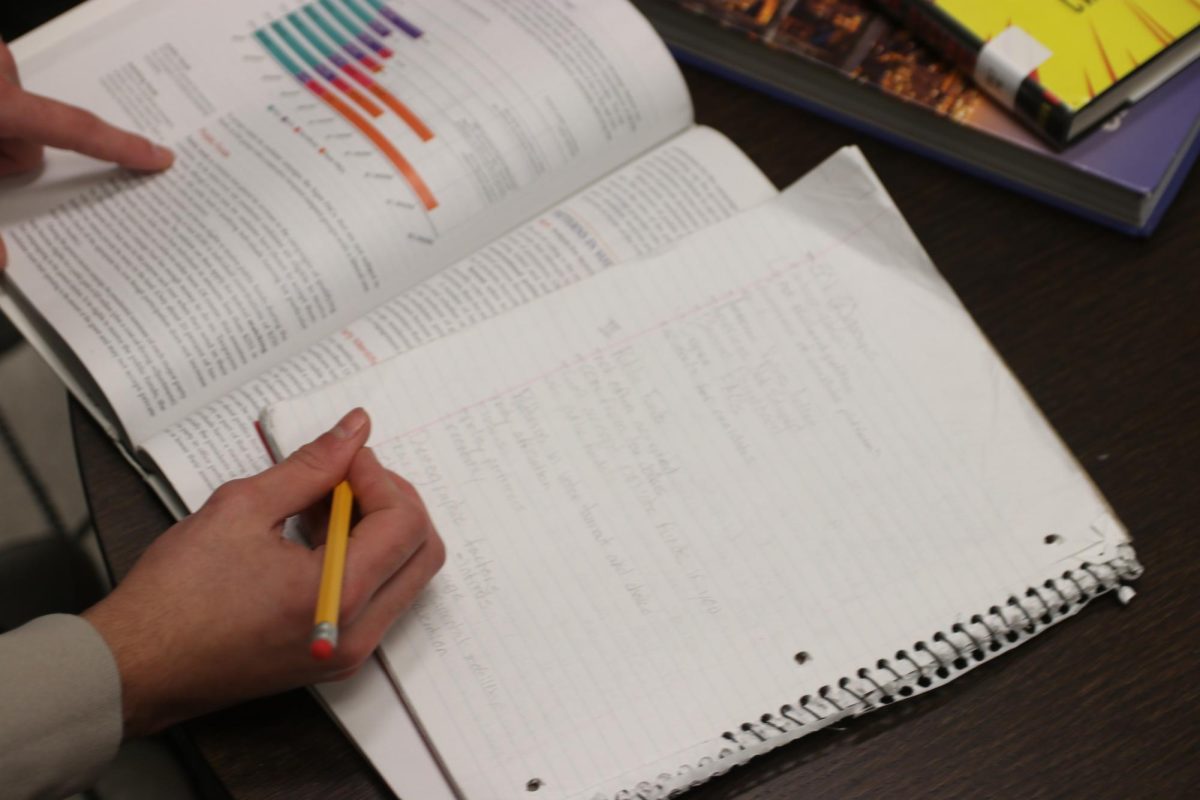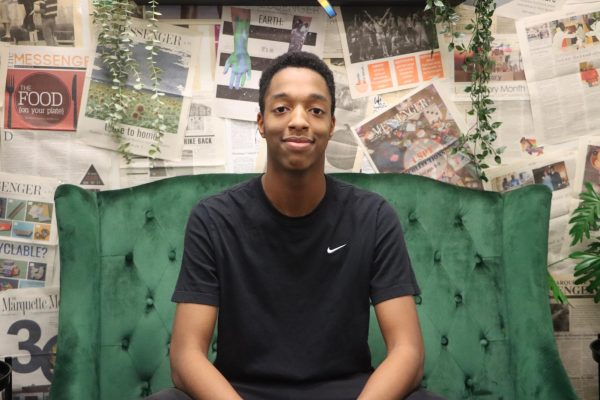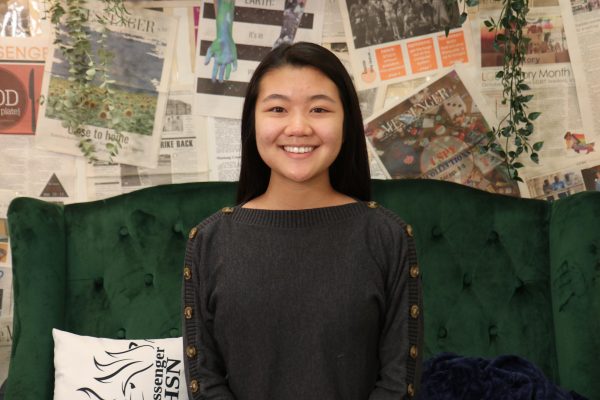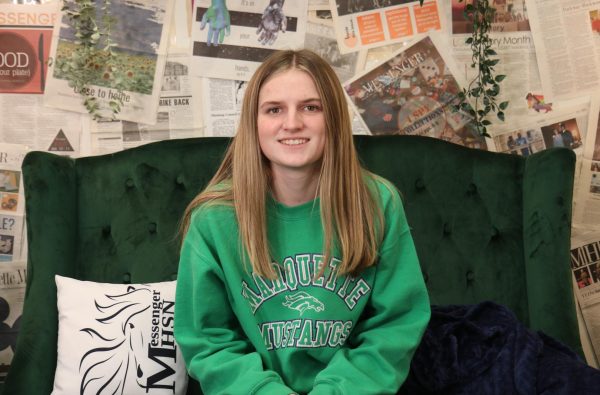Nora Dean, senior, has been preparing for final exams for three different AP classes. Living with six people, she said she has dealt with a lot of stress over studying.
“I have a big family, so I don’t have a space in my room to study,” Dean said.
Dean said she solved this problem by creating a private area for herself in her basement to prepare for exams, and she developed many other study strategies such as planning out which subjects to study.
“Having that plan of actual times you’re going to do things helps a lot,” Dean said. “Whatever I’m going to get done in that time, I’ll get it done, and I can come back to it later.”
Dean is not the only student trying to effectively study for multiple exams at the same time.
Andrew Cook, junior, said he has semester-long study strategies that can be helpful when finals arrive. He recommends doing things such as reading textbooks before class lectures and writing a lot of notes to retain information.
“Some people just say ‘don’t read the textbook,’ but I found that it’s actually really important,” Cook said.
Cook said he developed a lot of his current habits over time. He used to rarely study for tests in advance, but that ended up stressing him out.
“I got to the end of the semester and I was really worried,” Cook said. “Then I actually spaced out the review to study for the final and then ended up getting a good score.”
Erin Sullenger, social studies teacher, said developing good study habits in high school can be beneficial for college and beyond.
Sullenger specifically recommends strategies such as using note cards, taking a look at the content studied over an entire semester, asking questions when studying and studying in chunks.
Studying in chunks, in particular, helps students spread out their study time and prevent cramming, Sullenger said.
“Cramming causes a lot of stress,” Sullenger said. “When students put that much pressure on themselves, they feel like they can’t handle it, and their study time probably isn’t the best effort they could put forth.”
Sullenger also said students should try to separate their studying based on what they already know and what they don’t know.
“A lot of times, students want a study guide where they answer questions and they read it over and over again, but their brains aren’t really engaged in what they’re doing,” Sullenger said.






